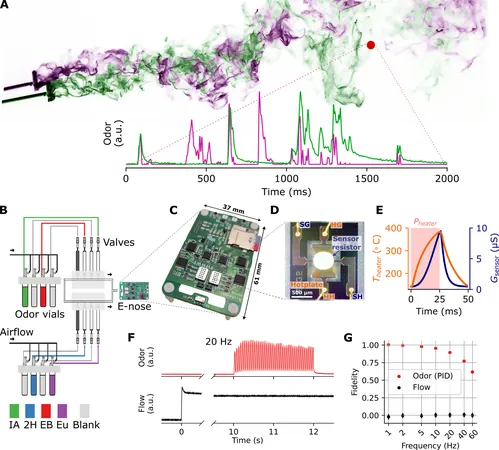
Shocking Study Unveils Gender and Racial Biases in NFT Market Prices: How to Create Fairness in a Digital Age!
2024-11-18
Author: Yu
Introduction
A new groundbreaking study from the Tepper School of Business and other prominent universities reveals a disturbing reality in the booming non-fungible token (NFT) marketplace: gender and racial biases are significantly influencing transaction prices. As the NFT market continues to grow, understanding these disparities becomes crucial for ensuring fairness and inclusivity in digital spaces.
Findings of the Study
Despite the progressive reputation associated with the NFT community—largely comprised of younger, wealthier, and politically active individuals—researchers have found that avatars reflecting female and Black identities sell for drastically lower prices than their male and White counterparts. The study, published in the acclaimed International Journal of Research in Marketing, shocked many with its findings.
According to the research, female CryptoPunks avatars were sold for an astonishing 37% less than similar male avatars, while Black avatars faced a staggering 31% devaluation compared to White avatars. This validates concerns that ingrained societal biases have permeated even the most modern, digital platforms.
Mitigating Factors
Surprisingly, the study also identified that avatars featuring technological or educational elements—like 3D virtual reality headsets or stylish “nerd glasses”—seemed to mitigate some of the racial and gender disparities. This finding opens the door for NFT creators to explore ways in which avatar attributes can be used as a tool for social equity.
Expert Commentary
Yuan Yuan, the lead author and a Ph.D. student at Carnegie Mellon's Tepper School, expressed the team's initial hopes of the NFT market being a less biased space due to its progressive user base. "However, our results suggest that even in this digital marketplace, persistent biases remain a significant obstacle towards achieving equality," Yuan noted.
Broader Implications
The implications of these findings are profound, signifying that the NFT marketplace is not immune to real-world prejudices. The digital realm complicates the issue further; avatars serve not merely as digital representations but as the very identity of individuals within these virtual communities.
Call for Action
As NFT platforms expand, there’s a pressing need to implement policy strategies that foster equity. Co-author Kannan Srinivasan emphasized, "By integrating attributes that counteract bias and discouraging discriminatory practices, NFT creators and platforms can pave the way for a fairer marketplace."
Limitations and Conclusion
While the study sheds light on these issues, it's important to acknowledge its limitations—factors such as the subjective perception of value and demographic representation within the study's dataset present challenges to broader applicability.
In conclusion, while the NFT market presents an innovative frontier, it remains marred by age-old biases that require immediate addressed. As the digital landscape becomes increasingly influential in our society, understanding and combating these disparities will be essential. NFT creators, investors, and platforms must take proactive measures to ensure that representation and fairness are at the forefront of this digital revolution. The future of the NFT market hinges on it!





 Brasil (PT)
Brasil (PT)
 Canada (EN)
Canada (EN)
 Chile (ES)
Chile (ES)
 España (ES)
España (ES)
 France (FR)
France (FR)
 Hong Kong (EN)
Hong Kong (EN)
 Italia (IT)
Italia (IT)
 日本 (JA)
日本 (JA)
 Magyarország (HU)
Magyarország (HU)
 Norge (NO)
Norge (NO)
 Polska (PL)
Polska (PL)
 Schweiz (DE)
Schweiz (DE)
 Singapore (EN)
Singapore (EN)
 Sverige (SV)
Sverige (SV)
 Suomi (FI)
Suomi (FI)
 Türkiye (TR)
Türkiye (TR)